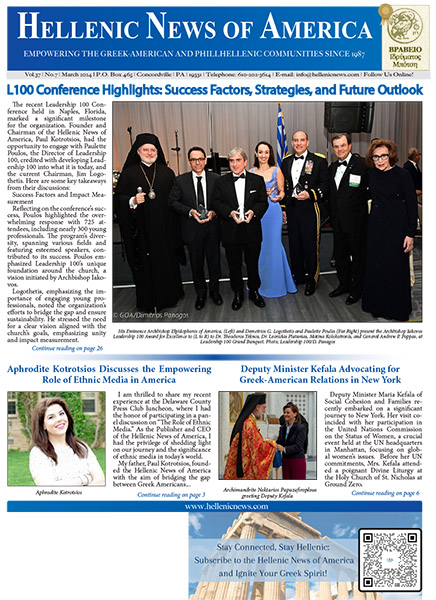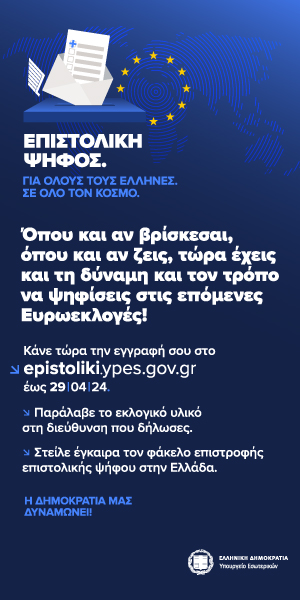Moscow’s recent aggressive actions have resulted in General Joseph Dunford declaring Russia the greatest security threat to the United States. Moscow poses an existential threat to Washington because it has a large nuclear arsenal, which Russian President Vladimir Putin cavalierly threatens to use, and has a zero sum approach to international affairs. Putin has a history of flirting with Greece, aiming to include the country in its circle of influence. The North Atlantic Treaty Organization (NATO) and America need to maintain their strong relationships with Greece and boost their military power in the eastern Mediterranean to ensure a stable strategic balance.
Greece became a member of NATO in 1952 and signed an agreement to install U.S. bases in the country in October 1953. The U.S. facilities not only granted America a strategic presence, but also provided Greeks with an active relationship with the U.S. military that has lasted for more than six decades. The Soviet Bloc mocked Greece at the time, stating it was enslaved by America. In 1961, Greece became an associate member of the European Economic Community, and became an official member of the European Union (EU) in 1981. Greece is considered a symbol of the beneficial effects of American determination to stand firm against communist expansionism.
Even after Greece became a NATO member, the Soviet Union tried to influence Athens to abandon the West. In 1956, Soviet Foreign Minister Dmitri Shepilov offered a package of Soviet investments to improve Athens’ infrastructure and support Greek industrialization, but Greece did not take the offer. In 1957, First Secretary of the Communist Party of the Soviet Union Nikita Khrushchev developed a plan to form an alliance among Egypt, Yugoslavia, Syria and Greece, assuming Athens could be detached from NATO — the plan was discarded, but Khrushchev continued to perceive Greece with geostrategic pragmatism.
Over the past few years, Russian President Putin has violated the Intermediate-range Nuclear Forces Treaty, invaded Ukraine, penetrated the computer networks of the White House, State Department, and Pentagon, expanded military presence in the Arctic, and is conducting airstrikes in Syria. Russia has increased its presence in the eastern Mediterranean, conducting military exercises, practicing for antisubmarine, anti-ship and air defense operations — inconsistent with a counterterrorism strategy, but appropriate for a conflict with the U.S. and NATO. Moscow signaled its intention to supply friends and clients in the region with advanced military capabilities, threatening to destabilize the balance of power across the Middle East. Russia also tests European boundaries in air, on water and undersea. Russian attack aircrafts fly right past U.S. and NATO ships in the Baltics on a regular basis, and even though Russian and American ships operate closely to one another in the region, Russians are unwilling to communicate.
With recent Russian aggression, massive immigrants flowing into Greece and Italy, the battle in Syria and the growing strength of the Islamic State, there is an increasing possibility of conflict in the area. The U.S. and NATO are moving to shore up their conventional deterrents in order to dissuade Russia from making greater use of military force to achieve its aims in Eastern Europe and the Middle East. The Sixth Fleet, the U.S. Navy’s operational fleet and staff of U.S. Naval Forces Europe, needs to be prepared to respond as conflict is on the rise. The U.S. should increase its military strength in the region including at Souda Bay on the Greek island of Crete, where the only port deep and long enough in the Mediterranean for an aircraft carrier pier side is located, to counter Russian action and other aggression in the region.
Just as in the past, Moscow is attempting to find common synergies with Greece so that it will have a friend in the eastern Mediterranean. While Athens was enduring tense discussions with its creditors over summer for a third bailout, Putin met with Prime Minister Alexis Tsipras to discuss ways to grow Greece’s economy, instead of choking it with austerity, as Athens’ creditors prefer.
Greece’s economic situation has become a strategic issue for NATO and the United States. Greece’s creditors should restructure Athens’ debt, extend the payment schedule, defer payments to relieve the country from high debt payments and allow Greece to focus on stimulating its economy, just like Greece and twenty other countries granted Germany after World War II. If Greece’s economy were to be headed in a positive direction, Athens will be more capable of maintaining its close military cooperation with the U.S.
Russia has tried repeatedly to pry Greece away from Europe, NATO and the EU. Past attempts include Soviet support of communists in the Greek civil war, funds to rebuild Athens’ war torn infrastructure, and attempts to detach Greece from NATO. Russia’s modern tactics include offering help to stimulate Athens’ struggling economy while increasing its aggressive actions in the region. It is in the interest of the U.S. and Europe to maintain a strong presence in the eastern Mediterranean, strengthen bases like those at Souda Bay, and restructure Greece’s debt.
Source: Lexington Institute







